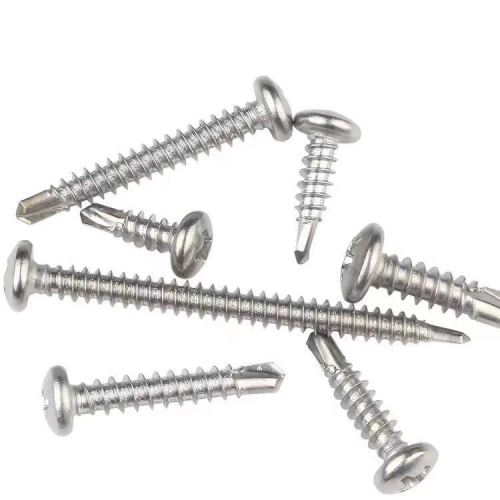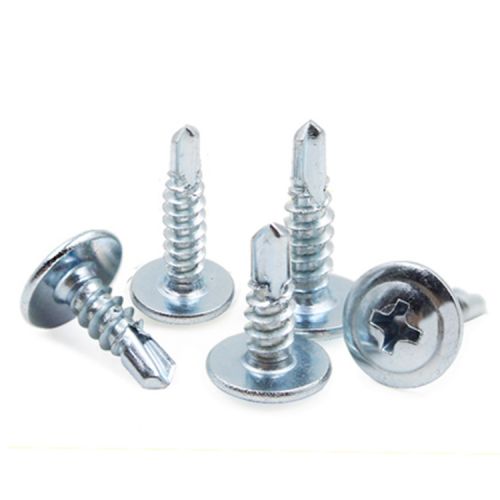

When it comes to fastening materials efficiently, self-drilling screws and cross-drilled tail screws are two of the most effective tools available. Whether you're working in construction, manufacturing, or DIY projects, these screws offer significant advantages in terms of ease of use, reliability, and durability. In this blog post, we'll explore what makes these screws unique, how they function, and why they should be a staple in your toolbox.
What Are Self-Drilling Screws?
Self-drilling screws are specialized fasteners designed to drill their own hole as they are driven into materials such as metal, wood, or plastic. Unlike traditional screws that require a pre-drilled pilot hole, self-drilling screws come equipped with a drill bit tip that cuts through the material as the screw is inserted. This feature saves time and effort, especially in repetitive or large-scale tasks.

Key Features of Self-Drilling Screws
Integrated Drill Bit Tip: The built-in drill bit at the screw's tip eliminates the need for pre-drilling, making the process faster and more efficient.
Variety of Head Types: Self-drilling screws are available with various head types, such as flat, pan, or hex, to suit different applications and provide the desired finish.
Material and Coating: These screws are typically made from high-strength steel and may be coated with zinc or other corrosion-resistant materials to ensure longevity.
Understanding Cross-Drilled Tail Screws
Cross-drilled tail screws, also known as cross-hole screws, are another innovative fastening solution designed for specific applications where a regular screw may not suffice. The tail end of these screws is drilled with a cross-shaped hole, allowing for additional stability and versatility in certain assembly processes.
Key Features of Cross-Drilled Tail Screws
Enhanced Stability: The cross-drilled tail provides extra gripping power, making these screws ideal for situations where traditional screws might loosen over time.
Custom Applications: Cross-drilled tail screws are often used in industries that require precision fastening, such as aerospace, automotive, or electronics.
Material Durability: Like self-drilling screws, these are also made from high-grade materials to ensure they can withstand high stress and harsh conditions.
Applications and Benefits
Construction: Both self-drilling screws and cross-drilled tail screws are invaluable in construction, providing strong, reliable fastening without the need for additional tools or steps.
Manufacturing: These screws are commonly used in the manufacturing of metal products, where quick and secure fastening is critical.
DIY Projects: For home improvement enthusiasts, these screws offer an easy-to-use solution that simplifies complex tasks, from assembling furniture to installing fixtures.

Choosing the Right Screw for Your Project
When selecting screws for your project, consider the material you’re working with, the environmental conditions, and the specific requirements of your task. Self-drilling screws are perfect for projects where speed and efficiency are paramount, while cross-drilled tail screws offer added stability in precision applications.
Conclusion
Self-drilling screws and cross-drilled tail screws are versatile, reliable, and indispensable tools for various projects. By understanding their unique features and benefits, you can choose the right type of screw to ensure the success of your task. For high-quality screws that meet your needs, explore the extensive range of products available at SHW Hardware.
By incorporating these specialized screws into your next project, you can achieve professional results with minimal effort, ensuring durability and reliability in every application.